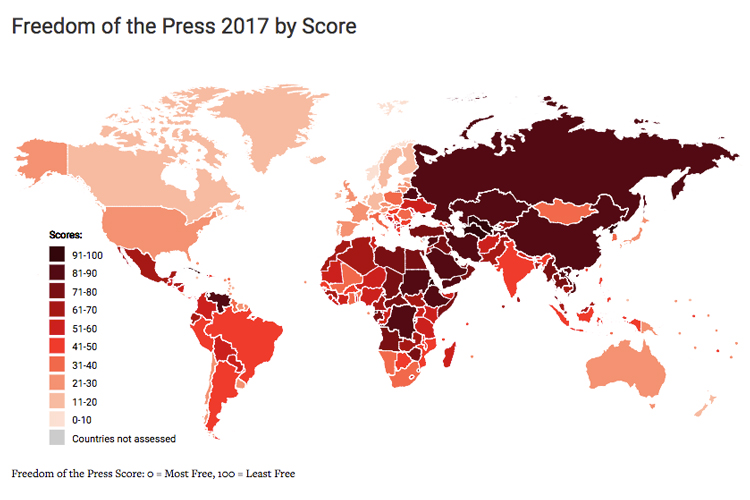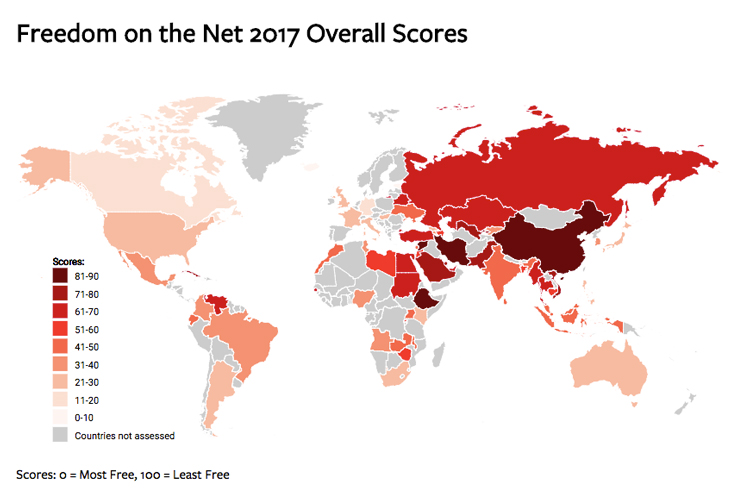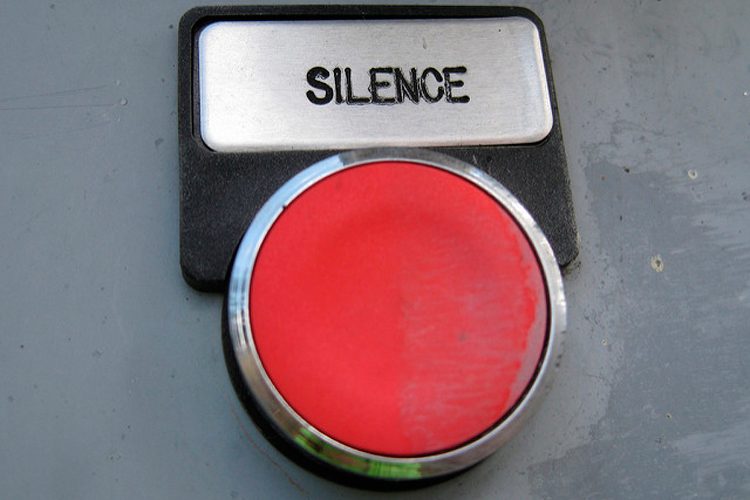Governments of countries around the world have recently been cracking down on what their citizens can say, write and post—and it’s scary. Any country could be next.
Just last month, Venezuela’s assembly passed a law prohibiting opposition to the government on social media. The law also obligates broadcast news outlets to air government messages for a set amount of time each week.
In late November, Egyptian lawmakers drafted a law that would punish “political commentators and intellectuals” for defaming the nation’s historical symbols.
While social media users in Venezuela could face a penalty of up to 20 years in prison if they break the new law, if the Egyptian law goes into action, one could face up to seven years and a hefty fine. Human Rights Watch has called the Venezuela law a “clear threat to freedom of expression,” as Al Jazeera reports.
Freedom of expression is under attack around the world, and it’s dangerous for us all—not just as journalists, but as global citizens.
A terrifying worldwide trend
Global press freedom declined to its lowest point in 13 years in 2016, according to the Freedom House’s “Freedom of the Press” 2017 report. Only 13 percent of the world’s population live in a country with a free press. Countries that showed declines included Poland, Turkey, Bolivia and even the United States.

Freedom of the Press 2017 | Freedom House
Online freedom isn’t faring well either. The Freedom on the Net 2017 report found that only 23 percent of the world’s population enjoy access to free internet use. Internet freedom has been in decline for the past seven years, and Ukraine, Armenia and, again, the United States and Turkey all experienced declines.

Freedom on the Net 2017 | Freedom House
These harsh declines mean any country could be the next one to be hit with restrictions on freedom of expression. It’s just a matter of time before another leader takes power, wanting to squash citizens’ access to information and their ability to share dissenting opinions on the very governments that are oppressing them.
The Danger of Restrictions
When freedom of expression is threatened in one country, it affects us all.
The globalization of news organizations and the growth of social media platforms have allowed for easy information-sharing between people all over the world.
Journalists today often have colleagues on other continents, in countries with media regulations different from their own. Social media allows everyday people (i.e. non-journalists) to interact with people living in countries they might have never heard of.
Being able to express dissenting views is a key element of freedom of expression. When that ability is threatened with jail time and fines, people will engage in self-censorship, keeping their opinions to themselves out of fear of the severe repercussions.
For those of us in countries with relatively few restrictions on freedom of expression, restrictions in other countries can also be harmful. Because of self-censorship, we might never get to hear the opinions of our colleagues, friends or fellow social media users in other countries. It might seem like everything is fine based on their silence, but in reality we’re just not getting the other sides of the story because they’re not allowed to share those opinions publicly.
With the increase in global interaction comes the importance of teamwork on a global scale.
We can no longer use an ‘us versus them’ rationale when it comes to issues like freedom of expression. An attack on this freedom in one place is an attack on the global network of journalists, activists and communicators who want to share information, opinions and ideas with those all over the world.

